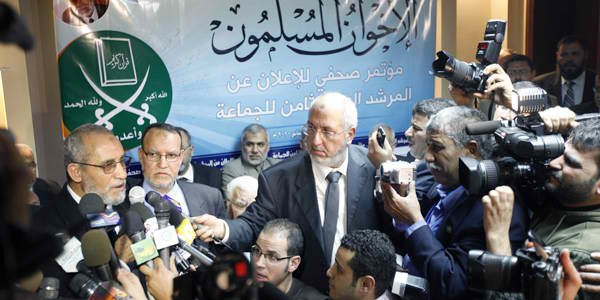Muslim Brotherhood goes legal
My latest column in The Atlantic considers the turning point reached this week when the Muslim Brotherhood’s political party gained official recognition.
CAIRO, Egypt — This Tueday, Egypt’s Muslim Brotherhood became a legal political party for the first time since President Gamal Abdel Nasser banned it more than half-a-century ago. The military officers managing Egypt’s transition out of the Age of Mubarak approved the Brotherhood’s new Freedom and Justice Party, the Islamist organization’s chosen vehicle to political power.
After decades in limbo, the Muslim Brotherhood will now have all the benefits of unambiguous legal status — and face all the scrutiny and questioning to which a political behemoth is subjected. The Brotherhood has built its considerable following, and honed its impressive organizational wherewithal, by striving in the shadows against a police state’s full force.
During their decades under the ban, Brothers spread their religious message and delivered what services they could. Now, however, the challenges are vast and political, and the underground methods of a doctrinaire religious group (whose primary mission, always, was spreading a strict message of faith) won’t play the same way on the political stage.
It’s a confusing transition for the Islamist activists trying to reposition their organization from oppressed social group to political strongman.


